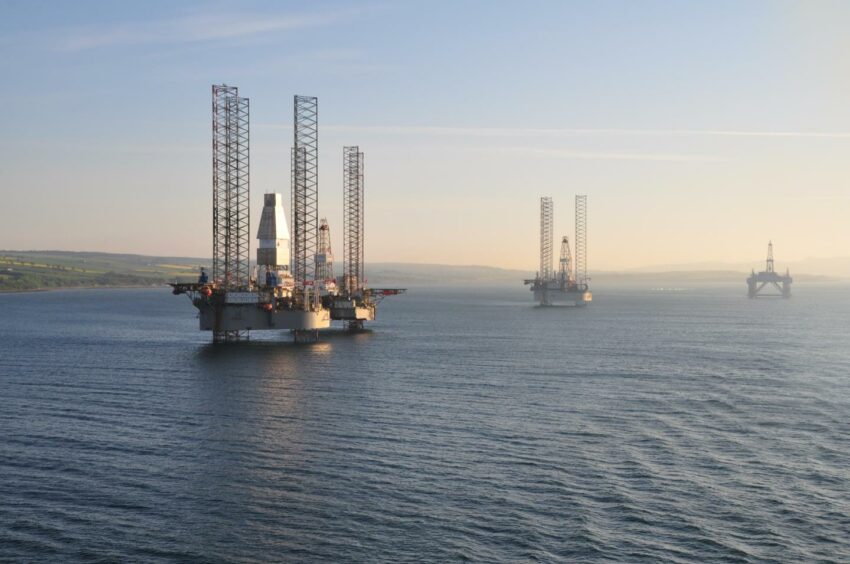
Dozens of north-east business leaders have penned an open letter warning politicians against creating a “hostile investment environment” for the oil and gas sector.
Aberdeen and Grampian Chamber of Commerce (AGCC) said the document, issued to UK and Scottish politicial leaders, “follows remarks calling for an end to oil and gas exploration in the North Sea, which threatens future investment”.
The letter is signed by 58 figures from business and civic life in the region – which AGCC said employs more than six million people – including the Aberdeen City and Aberdeenshire council leaders, oil and gas and renewables industry representatives and other private sector groups including Aberdeen Football Club.
It is also undersigned by the Scottish and British Chambers of Commerce.
The move comes two weeks after Scottish Greens co-leader Patrick Harvie was quoted as saying “only the hard right” continues to support new oil and gas extraction, leading to huge backlash from the industry.
The letter states that “no one in denial about the direction of travel” to get to net zero, but said that characterisation of “who’s good, who’s bad” is overly simplistic as the sector attempts to make a gradual transition while protecting jobs.
It adds that statements calling for a cliff-edge end to new exploration and production have “shaken investor confidence and placed tens of thousands of jobs at risk”, adding that government “must avoid a repeat of what happened to our mining communities in the 1980s”.
Who’s good, who’s bad?
Meanwhile a gradual transition could sustain 200,000 roles by 2030, the majority of them in low-carbon energy and entirely new jobs, according to a recent Robert Gordon University (RGU) report.
Mr Harvie, who leads a party which shares power with the SNP in Holyrood, made the comments in the wake of Shell’s decision to pull out of the Cambo oilfield.
Questioned later on the remarks, the Scottish Greens insisted he was only referring to the Conservatives as “hard right”, and not oil and gas workers generally.
The AGCC letter also follows revelations earlier this year that the UK Government was considering a Denmark-style ban on new exploration, although that has not come to pass.
A key point made in the document is that, while the country continues to require domestic fossil fuels, it is better to produce that domestically rather than import from overseas which will have higher carbon emissions.
The letter also discusses the importance of a domestic sector for security of energy supply.
It states: “We must now pause and allow for a reasoned debate about our energy future to take place. At the same time, we urge politicians to reflect carefully on their public statements on oil and gas and the impact they have on investment in the industry. We must not create an adverse policy environment at this crucial moment in our energy transition journey.”
AGCC chief executive Russell Borthwick said the region has been portrayed “as part of the problem rather than part of the solution”.
He said: “This is a large cross-section of British business – companies and groups which collectively employ more than six million people – speaking as one to send a clear message to our political leaders that it is time for an honest and frank debate about the role that oil and gas plays, and will continue to play, in our society.
“The reality is that the skills, people, and experience embedded in the north-east of Scotland have quietly been leading the way in moving the UK towards its net-zero targets, without any intervention from COP26.
“This is a region bold about the pioneering role it will play in developing the technologies which will light our path to net zero. However, turning the North Sea into a hostile investment environment today does nothing to support that transition. In fact, it does the opposite, driving investment and tens of thousands of jobs away to other regions of the world.”
Sir Ian Wood, chair of the Energy Transition Zone (ETZ) in Aberdeen, added: “It is very encouraging to see so many businesses supporting the oil and gas industry which reflects its huge contribution to meeting the UK’s energy requirements, boosting economic productivity and sustaining jobs over the last 50 years.
“It has been very clear for some time we cannot put ourselves in the position of reducing domestic production only to increase carbon heavy imports from overseas. This would be entirely counter productive, both environmentally and economically. The conversion of gas to hydrogen driven by offshore wind and the huge carbon capture and storage availability will ensure we can get to net zero by 2045.”
Recommended for you


 © PA
© PA © Supplied by DCT Media
© Supplied by DCT Media